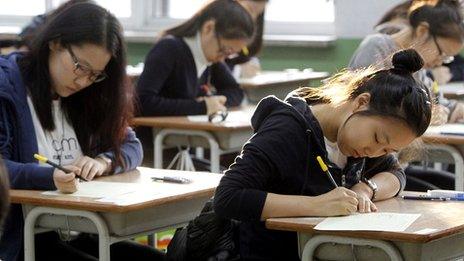Educating Wales - can we learn from Polish schools?
- Published
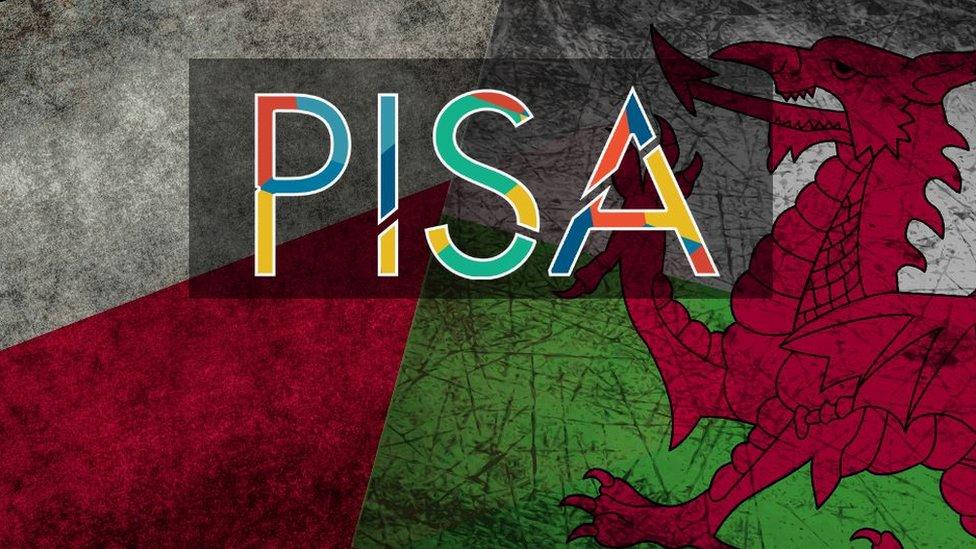
Poland's results in the Pisa tests, which compare the performance of pupils in different countries, improved dramatically between 2000 and 2012.
Although they did not do as well in the last set of tests, Poland's 15-year-olds are still doing better in science, maths and reading than their Welsh counterparts.
So is there anything that Wales can learn from the Polish education system?
In the early 1990s, more than 60% of adults living in rural areas in Poland had only a primary school education.
Reforms
When the first Pisa assessment was administered in 2000, Poland performed poorly. By 2012, it had scores above the average of all the countries taking part in maths, science and reading.
That improvement was attributed to a comprehensive series of education reforms, including standardised exams at the end of primary, lower and upper-secondary education, changes to the curriculum and investment in teachers' professional development.
Pupils spent more time studying core subjects and vocational study was delayed until the age of 16.
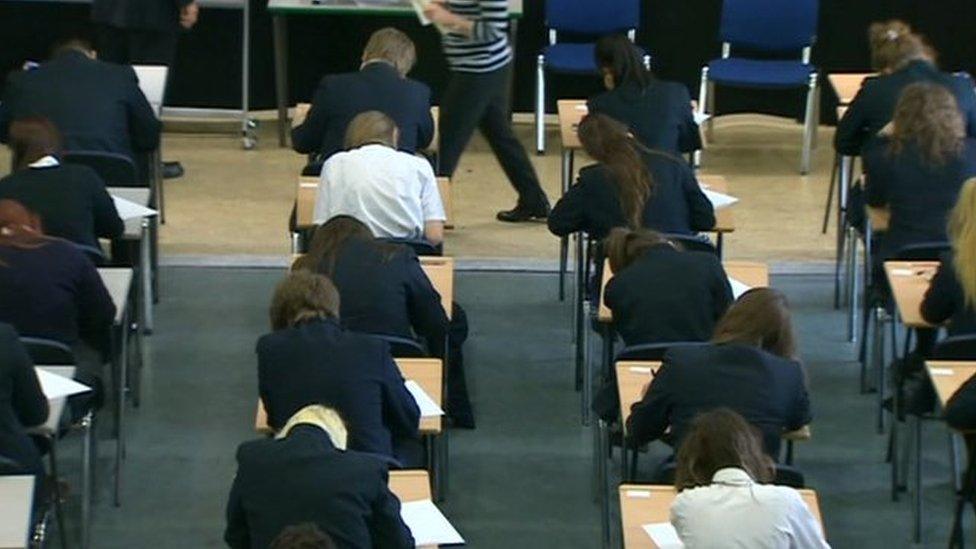
Speaking before the 2015 results were published, Janusz Wolosz, counsellor for education at the Polish embassy, highlighted how the collapse of communism led to a move away from a centralised system in Warsaw.
More responsibility and greater control over funding was instead given to local authorities "who know best what needs their pupils have".
'Not just ticking boxes'
While Poland is known for testing its students, Mr Wolosz said it was now "moving away" from those "which do not prove necessary", such as exams at the end of primary school education.
And he stressed that tests in higher education were "not just ticking boxes with the correct answers, but we also want to make students think strategically and we want to learn how they perceive the problems".
Asked whether the Polish model could be replicated in other countries, he added: "It's a very specific cocktail of factors, situations and circumstances... I cannot say 100% that it can be copied from country A to country B.
"If you want to improve quality of education you can always look for examples of best practice, and I hope that the Polish system can be seen as one, but I would be very cautious on having a full copy of the system introduced in other countries."
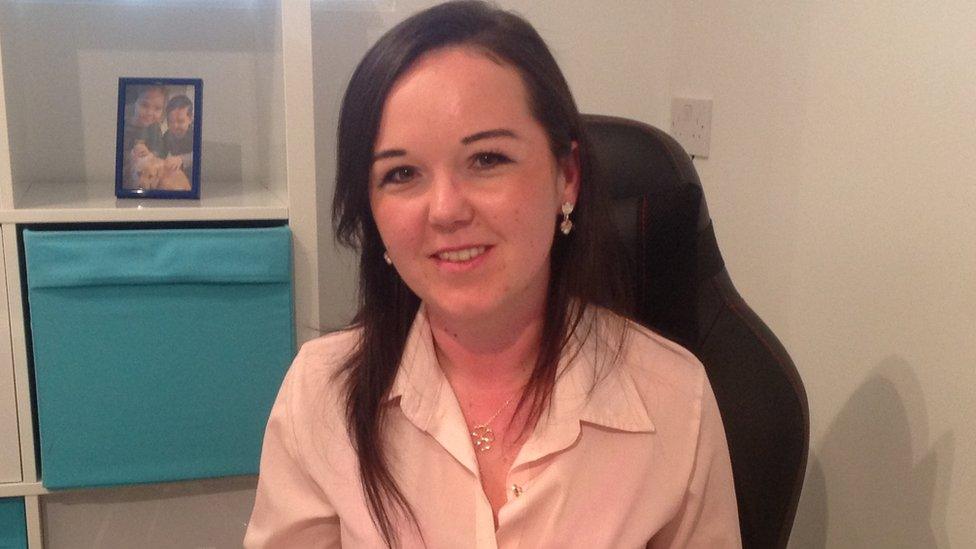
Agnieszka Zablocka: "Polish education is too much theory and not enough practice"
Others agree that copying the Polish system here would be a mistake.
Agnieszka Zablocka grew up in Poland but now lives in Wrexham with her young family,
"In my opinion, it's too much theory and not enough practice," she said.
'Very happy' with Welsh system
"My sister-in-law just passed her final exam in Poland and she had 95% on English language but when she came to the UK, she wasn't able to speak to people comfortably. She wasn't able to understand them.
"My own daughter goes to primary school here and I am very happy with it.
She went on to say that last month "she showed me a report she prepared - on her own - about Guy Fawkes and I've been very surprised how well she can speak and how well she can write.
"She's only six and I have friends and family in Poland with children her age, and they are only just starting learning letters and numbers. They are not able to read or write."
'Less choice in Poland'
Maciej Szukala, who went to school in Poland before moving to Wrexham at the age of 10, said there was good and bad in both systems.
"The Polish way of education is that you have to know everything. You have to be able to pass exams in maths, Polish and science and you have to know all three subjects in order to do any other subjects.
"It's a better system here in that we do A levels in what we actually want and if we want to specialise - say to be an accountant - that's what we can do.
"There is much less choice in Poland. If you're not going to achieve in those core subjects, you're going to fail so that puts a lot of pressure on students.
"They work too hard. My partner's brother is 15 and goes to school in Poland. He starts at 07:00, finishes at 15:00, comes home, eats and then until about 21:00, he still has to study.
"I do not find that to be a good system - he's overworked, even on a weekend he doesn't have any rest. But if you want to have good grades, you really have to work hard."

Maciej Szukala was educated in Poland and Wales
Mr Szukala, 22, a former Rhosnesni High School pupil, now runs a successful legal translation business.
Despite his criticisms of the Polish system, he said he did well at school precisely because of the work ethic he learned in Poland.
"I took the culture and work ethic of Polish schools to the UK and I used them to succeed," he said.
"I did four years of primary school in Poland and then started secondary school over here and I found it easy. I loved my school because I could come home and enjoy myself, go on my tablet or just have fun.
UK students 'complacent'?
"It was totally soft compared to Poland - I didn't feel any pressure. I just felt school was a good time. Yes, you had to listen in the lessons but there wasn't that much to do."
Mr Szukala feels students in the UK can be "complacent" and that schools have a tendency to wrap them up in cotton wool.
"The problem is that we don't have discipline in in schools," he said.
"My school was a great school but I felt that we weren't pressured enough.
'Too soft'
"The way that Polish education works very well is that there are a lot of exams. You have a couple of lessons on one subject and then an exam. If you don't pass, you get a zero grade. I think more tests like that are needed here.
"We're too soft. With Brexit and a lot of challenges across the economy, we need to be well-prepared.
"We are a great nation, we are very tolerant and accepting, but we have to up our game as far as education is concerned if we want to compete in the future."
- Published5 December 2016
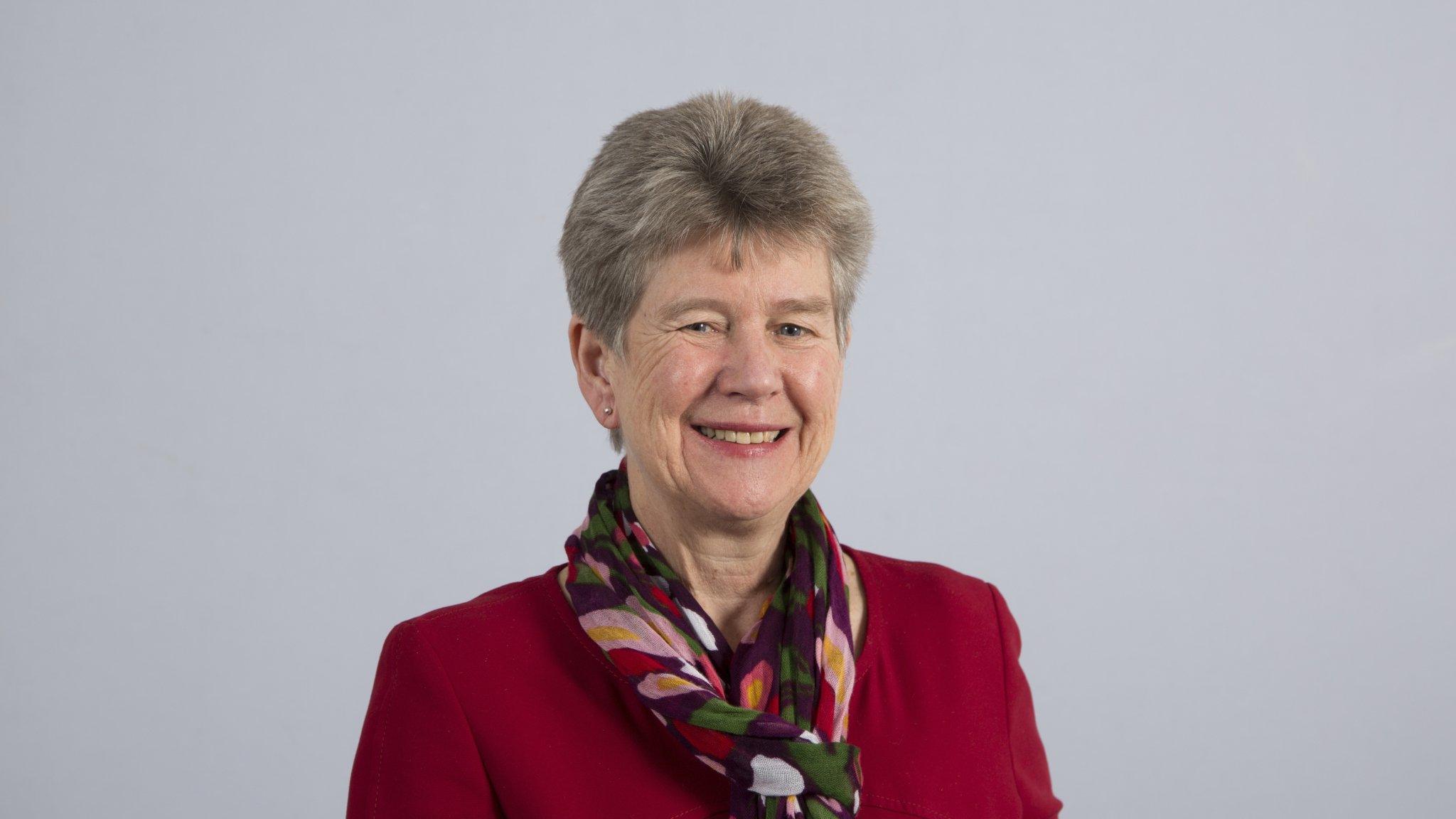
- Published4 December 2016
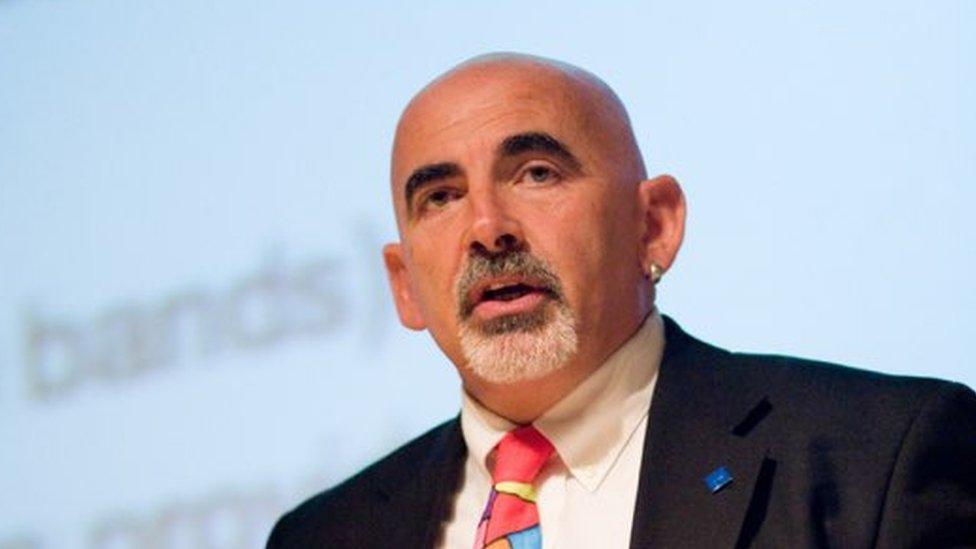
- Published5 December 2016
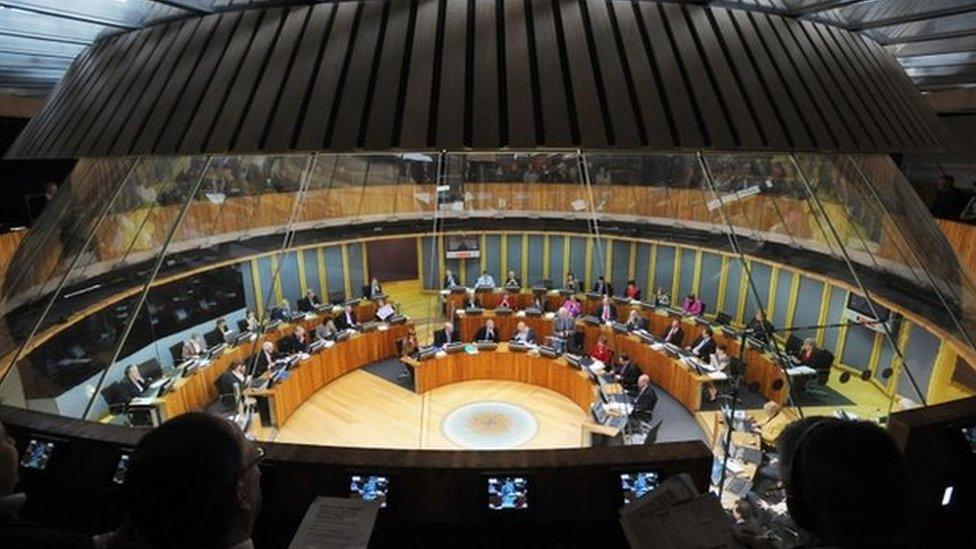
- Published3 December 2013
